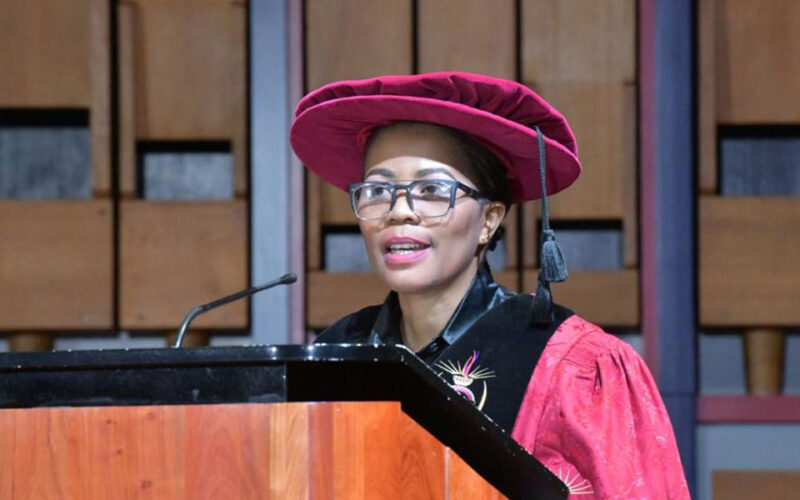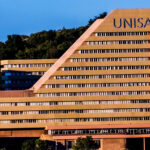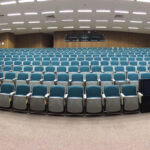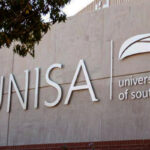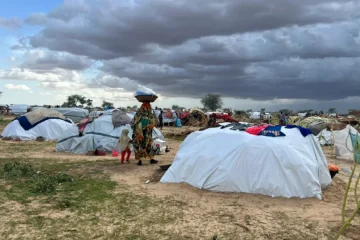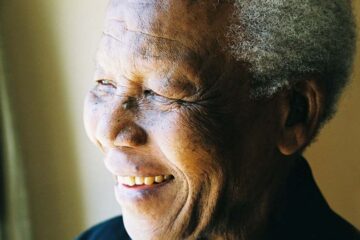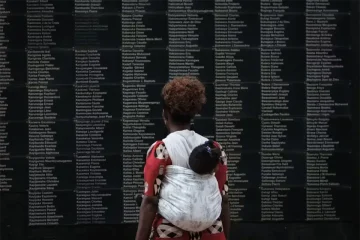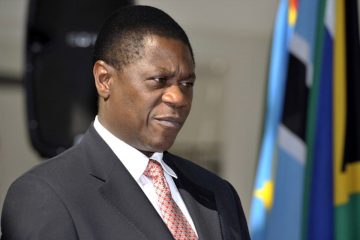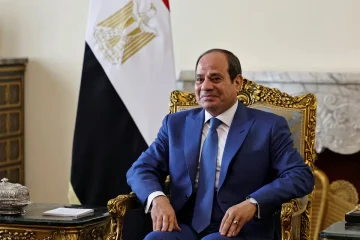PULENG LENKABULA
AS the spectre of inauguration into the position of Principal & Vice-Chancellor looms large, with me standing at the precipice as the first female and black female Principal and Vice-Chancellor at the University of South Africa (UNISA) in its147 year history/herstory, I am at once humbled and affirmed.
It is an herstorical moment that recalls the words of Michelle Obama, famously recorded in her memoir titled BECOMING, where she laments that on the occasion of the Inauguration of Barack Obama as the first black President of the United States, that “there is no handbook for incoming First Ladies of the United States”.
Alas! There is no manual for the incoming First Black Female Principal and Vice-Chancellor of UNISA, save the revolutionary scripts on which my radical consciousness and feminist leanings are founded. Homage is due to a great woman like Maya Angelou who might have envisaged events of this nature. She writes:
You may write me down in history
With your bitter, twisted lies,
You may trod me in the very dirt
But still, like dust, I’ll rise.
….
Out of the huts of history’s shame
I rise
Up from a past that’s rooted in pain
I rise
I’m a black ocean, leaping and wide,
Welling and swelling I bear in the tide.
Leaving behind nights of terror and fear
I rise
Into a daybreak that’s wondrously clear
I rise
Bringing the gifts that my ancestors gave,
I am the dream and the hope of the slave.
I rise
I rise
I rise.
It is indeed an incredible and humbling honour for me to be the fourth Vice-Chancellor and Principal to lead UNISA in the democratic era. As someone who has spent most of her professional career within the university environment, I am deeply aware of the significance of this ceremony.
As I receive the baton from those that have run this race before me, I’m truly excited about what lies ahead as I steer this great university towards a new future. I’d like to acknowledge the warm and generous welcome I’ve received from the wider university community. I want to take a moment and thank the council for the confidence it has shown in me. I do not take lightly the responsibility that has been entrusted to me, to lead UNISA at a time of extraordinary uncertainty and change both in South Africa and across the world. I wish to also express my gratitude to my predecessors for the work they’ve put in to build this university into what it is today.
Many giants of our history are counted among the alumni of UNISA. I name Nelson Mandela, Dikgang Moseneke, Andrew Mlangeni, Ahmed Kathrada amongst others. While their bodies were incarcerated on Robben Island, it was UNISA’s position as a distance learning institution that made it possible for them to further their education. In persisting to learn while confined behind the high walls of the apartheid prison, they showed their unfailing belief in a democratic South Africa.
In appointing me as the first woman to take up the role of Vice-Chancellor and Principal of UNISA, this institution continues this great legacy of championing transformation and inclusion.
Since my appointment was announced I have received many words of congratulation, encouragement, and guidance from a community of women and allies who understand what my elevation to this post means for gender equality. I continue to receive messages of support from the most distinguished of South Africa’s academics as well as young and activists who yearn to see change in South Africa’s higher education system. After decades during which South Africa’s universities were run and managed by an exclusively male fraternity, the past decade has seen a decisive shift towards a diverse and inclusive cadre of Chancellors, Vice-Chancellors, and Principals.
I will do all in my power to promote the cause of gender equality within the university. I know I can count on the support of so many across the university who are deeply committed to the cause of transformation. I know that I would not be standing here without the pioneering work of the many women and men who agitated and fought for gender equality. Their example served as the springboard for my desire to hold an office of this magnitude. I will call on the guidance, support, and community of those whose light has brought me to this historic moment.
I would also like to take a moment to acknowledge those who guided me and mentored me as my career took off. They are too many to name individually, but their patience, knowledge and wisdom have led me to this milestone.
Those who are familiar with my career know that I’m not new to UNISA and that my arrival is in many ways a case of coming back home. Thus, I take my new role not as someone completely new to the university, but as one who has traversed many of its halls before. I also bring with me my learnings from the University of the Witwatersrand and the University of the Free State where I most recently held an appointment as the Vice-Rector of Institutional Change, Student Affairs and Community Engagement. What all these institutions have in common is the need to transform and transform meaningfully. I’m ready for this challenge and will face it without hesitation.
My journey in higher education has been a long and exciting one. It has been founded on my strong belief that universities exist to serve their communities and to uplift the marginalized. I truly believe that institutions cannot be neutral on matters of justice, transformation, and redress.
As a university, UNISA must become a champion of locally impactful and relevant research and training. According to Statistics South Africa, the youth unemployment rate was 46.3% in the first quarter of this year. It is in this context that the academic project is tasked with raising a generation that is equipped with the tools to build useful innovations for sustainable development. To grow our economy and move us towards achieving the Sustainable Development goals.
There are ethical choices that our institutions must make if they are to overcome the problematic legacies of the past and build a foundation for a better future. There was a time when universities were proud to remain aloof from the material conditions of those whose lives they opined on.
But, as Linda Tuhiwai Smith reminds us in Decolonizing Methodologies: Research and Indigenous Peoples, “Research for social justice expands and improves the conditions for justice; it is an intellectual, cognitive and moral project, often fraught, never complete, but worthwhile”.
Tuhiwai Smith is not alone in advocating for the Decolonial project. We need to move away as well as problematize the liberal philosophy with its individualistic tendencies to be inward-looking, competitive and work towards constructive collusion, collaboration and cooperation.
In the process we will hopefully challenge the apparent normativity of cultures of greed, thuggery, inhuman cultures which conflicts/ problematize the ubuntu/botho institutional cultures. We will hopefully create a listening culture in which there is a commitment to strive for providing a quality-driven education which would lead to the positive transformation of our contexts.
It was Ngugi Wa Thiong’o with his 1986 text, Decolonizing the Mind, who argued so cogently that long after political freedom had been gained, the imperial project still had considerable sway over the minds and imaginations of the formerly colonized.
It is pertinent to problematize the apartheid and colonial mentality which created a new violent logic of separating South Africa from the rest of the continent. In the process, we conveniently separated ourselves from those of our own kind; as is manifested in the academic sector, by the resistance that many a scholar have towards the internationalization drive.
Such resistance tends to conveniently ignore the role which other African countries played during the period of apartheid here in South Africa. I am of the view that as an institution, we need to create a constructive balance between radical hospitality as well as prioritizing redress in terms of the affirmation and empowerment of historically/herstorically marginalized South Africans in the academic space.
We can thus cannot avoid the need for confronting our pasts and considering how both our societies and institutions need to embrace change. It was our Chancellor who reminded us in his I am an African speech when he said ‘I am an African. I am born of the peoples of the continent of Africa … The dismal shame of poverty, suffering and human degradation of my continent is a blight that we share.”
This is why one of my priorities as Vice-Chancellor and Principal is to accelerate the push for African knowledge systems to be at the centre of what UNISA teaches and researches on. The work we do has to be rooted in heightened social awareness and responsiveness. We must encourage research in practices that do not merely privilege or mimic Western knowledge systems.
When I advocate for African Knowledge systems, it is from a realization that to break the yoke of South Africa’s extreme inequality and rising unemployment, we must begin to bring our academic institutions closer to the realities of the common man and woman. We must begin to measure the value of our research and training by the impact it makes on our social and economic realities as a country.
There is no doubt that for our students the impact of Covid-19 and its concomitant effects has been truly destabilising. If the larger world beyond the confines of the university has been so deeply upended by the arrival and impact of the pandemic, it’s clear that the effect on the most vulnerable amongst our students has been devastating.
With this in mind, I intend to ensure that as a university we prioritise support for students facing mental health issues. Covid-19 increased a sense of isolation, especially during the hard-lockdown period and those suffering from mental health concerns had little support. One of the things that keeps me up at night is when I ask the question of how our students have managed their lives in light of the multiple problems compounded by COVID-19.
Many of our students come from the most disadvantaged communities, and even with all their resilience, the difficult times have severely hampered their ability to study effectively. As a university, we must be responsive to the existential uncertainties that our students face.
One of my priorities is to prioritize the needs, including the safety, of the historically/herstorically marginalized in our midst, that is women, people with disabilities and the LGBQTI+/queer persons.
Our society is a particularly violent one, and Gender-Based Violence (GBV) is one of the worst scourges which stare us in the face. UNISA has to offer its staff and students an environment that is safe from GBV. UNISA must do more than raise issues of GBV, but as a university community, we must hold the perpetrators accountable.
My vision for the University is intolerant of social injustices, including gender-based ones and one that lends its voice to those who seek and pursue justice. Poverty is a form of violence and a pervasive injustice that we cannot ignore in our pursuit of higher knowledge.
It is only when our students can learn in an environment that supports their learning, regardless of gender or socio-economic background that we can improve our graduation rates. I have asked the Executive Deans and other managers in colleges to focus on the provision of a solid and relevant education to our students. This can only happen when we make available to our students the resources and support which they need.
As a Comprehensive Distance E-Learning institution, UNISA’s student body is both large and highly dispersed. The layers of diversity within the institution are unending. And yet for the complexity that this brings, UNISA is rightly proud of its contribution to the distance learning modality at a global level.
And yet, here too we see a modern disruption. Where the old model of distance learning relied heavily on UNISA mailing printed parcels of learning materials around the world, the new order has shifted to digital platforms. As the digital has become the standard interface, there are tough choices that we as a university must make in terms of the location and coordination of our Open Distance eLearning programmes.
Our students have expressed frustration at key moments because our IT infrastructure has not been able to handle the loads during registration and results announcement. In my first eight months in this role, it has become evident that there is an urgent need to completely overhaul the system and function so that it can effectively support the requirements of students, colleges, and the overall delivery of the university’s learning management system.
At this time of non-stop change, UNISA is well placed to address society’s most demanding challenges. As a university, we have world-class research facilities as well as rated researchers. We have also embraced so deeply the spirit of using research to meaningfully transform the lives of those in our communities.
Education is most useful when it improves lives. One of my priorities is the extent to which public research can galvanise the university community and enhance its collaboration with the wider community. To that end, I have advocated for the institution of the catalytic niche areas: Marine Studies, Aviation and Aeronautical studies, Automotive, Energy
Space study and Square Kilometer Area, Fourth Industrial revolution and Digitalisation, Natural Sciences (Biotechnological studies), Health Studies/Medicine, Feminist, Womanist, Bosadi Theorizations and Student Support and Co-Curricular activities.
As someone who has studied ethics, I envision a UNISA that takes into consideration the voices of the young and the marginalised to address society’s biggest challenges. In the past four weeks, we have been celebrating Women’s Month across South Africa. While there is still much that needs to be done, I think we have laid a sufficient foundation for the achievement of measurable targets across the university.
The goals of diversity and inclusion are clearly not my only goals, but I would like to state categorically that these will define my legacy. These goals add to my priorities of activating and implementing the academic project as well as promoting a culture of academic excellence.
The preceding culture will be typified by our commitment to the spirit of discovery, enquiry, innovation, invention and ideation. I aim to promote African Knowledge systems as well as driving innovations and inventions for sustainable development.
These goals may not all be achieved during my five year period of tenure, but I have no doubt that with the support of the university community and all its/all our stakeholders, they will be achieved sooner rather than later.
Across the university, in its various campuses and colleges, its libraries, both physical and digital, are stored some of the historical records of research and achievement. These archives reflect both our highest values and the vestiges of past beliefs and practices.
To achieve our aspirations of sustainable development, we have to double down on the work of promoting diversity and inclusion so that it becomes a source of pride for those associated with our university.
All over the world, institutions large and small are having to reckon with their past, their past practices and engage in the necessary work of healing from past harm. Both the academic and administrative projects must contend with the project of redress, and they will reap the rewards of their courage.
I would be remiss in my mission if I did not fully tackle the implications of the findings by the ministerial task team that was chaired by Professor David Mosoma to look into the recruitment, retention, and progression of black academics.
The task team established that black and coloured academics remain underrepresented in the academic field. Of particular interest to me was the report’s emphasis of “the lack of appropriate role models and mentors and inability to embark on a research trajectory as significant barriers that work against the recruitment, retention and progression of black and women academics”.
I call on all those who want to see a radically different academy in the next decade to join me as we tackle these legacy problems head-on. There will be no change without courage and in this regard, we should always remember the words of poet and humanist Keorapetse Kgositsile, who said:
“When the clouds clear we shall know the colour of the sky”
As a developmental state, those who run higher education institutions in South Africa are depressingly familiar with the problems of funding. Our universities have been forced to prioritise and make tough choices. Many universities have been forced to adopt ‘third income stream’ strategies because many students are unable to fund their studies fully and government funding is either limited or shrinking.
These tough choices impact our ability to recruit inclusively and begin to drive the equitable representation in academia and industry that we so desperately need. We have to rise to the challenge and ensure that UNISA is indeed a high-performance university and that’s exactly the challenge I’ve thrown to my counterparts across the university.
We need to intensify our efforts and effectiveness in teaching and producing quality graduates. I am making a call to the private sector to do more to provide financial aid to students so that the responsibility is not only left on the government and its agencies to provide the challenge of funding for higher education. Corporate South Africa is a net beneficiary of the best products of our education system, and they should play a more direct role in making education accessible to all those who seek it.
I do not doubt that the coming years are full of opportunity and advancement. Within the UNISA community, we have the talent, imagination, and resourcefulness to transform education and use it as a tool to transform the life of our people for the better. Join me on this journey of hope, creativity, and courage so that together we can create a different and more caring world.
- This is an edited version of Professor Puleng Lenkabula’s addresss during her historic investiture as the Principal and Vice Chancellor of the University of South Africa. The speech was made available by Abbey Makoe.

